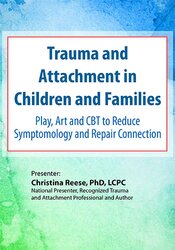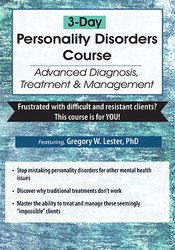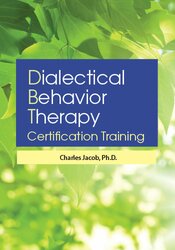Buy Clinical Applications of the Polyvagal Theory with Stephen Porges, PhD -Trauma, Attachment, Self-Regulation & Emotions – Stephen Porges Course at GBesy. We actively participate in Groupbuys and are committed to sharing knowledge with a wider audience. Rest assured, the quality of our courses matches that of the original sale page. If you prefer, you can also buy directly from the sale page at the full price (the SALEPAGE link is directly provided in the post).
Clinical Applications of the Polyvagal Theory with Stephen Porges, PhD -Trauma, Attachment, Self-Regulation & Emotions by Stephen Porges,
Salepage link: At HERE. Archive:
- Faculty:
- Stephen Porges, PhD
- Duration:
- 6 Hours 2 Minutes
- Format:
- Audio and Video
- Copyright:
- Oct 18, 2019
Description
Discover how powerful insight from the Polyvagal Theory can help you tap into your clients’ nervous system and accelerate treatment outcomes.
Polyvagal Theory has revolutionized our understanding of both how the body’s autonomic nervous system responds to fear and trauma and how therapists can work with it to create safety, connection and lasting healing.
Now you can watch Stephen Porges, PhD, creator of the evidence-based Polyvagal Theory to learn how the Polyvagal Theory leverages neurobiology and psychophysiological cues to enhance your ability to treat trauma, anxiety, ADHD, addiction, depression – and a host of other mental health conditions.
Get practical guidance into the therapeutic power of facial expression, eye contact, voice modulation, and listening to help your clients overcome traumatic experiences, attachment wounds, and self-regulation problems – insight that can enhance any therapeutic approach and help you achieve lasting clinical outcomes.
Through interactive demonstrations, videos, and engaging discussions, you’ll learn practical methods of applying Polyvagal Theory within the clinical setting to help clients of all ages.
You’ll walk away with effective interventions that build client safety and connectedness.
Don’t miss this opportunity to discover how the nervous system holds the key to improving treatment outcomes, even with your most challenging cases.
Handouts
| Manual – Clinical Applications of the Polyvagal Theory (18.37 MB) | 130 Pages | Available after Purchase |
Outline
The Polyvagal Theory
- The biology of safety and danger
- The principles and features of the Polyvagal Theory and how to apply it in a clinical setting
- How the Polyvagal Theory can explain several features related to stress-related illnesses and psychiatric disorders such as PTSD, autism, depression, and anxiety
- The Social Engagement System and how it compromised by stress and trauma
- Resetting our Social Engagement System
- Evolutionary changes and adaptive functions in the autonomic nervous system
- Humans response hierarchy to challenges
- Three neural platforms that provide the neurophysiological bases for social engagement, fight/flight, and shutdown behaviors
Social Engagement System and Psychiatric and Behavioral Disorders
- A description of the “face-heart” connection that forms a functional social engagement system
- How our facial expressions, vocalizations, and gestures are regulated by neural mechanisms that are involved in regulating our autonomic nervous system
Neuroception: Detecting and Evaluating Risk
- How our social and physical environment triggers changes in physiological state
- Understanding that adaptive physiological reactions may result in maladaptive behaviors
- Immobilization without fear
- Play as a neural exercise
- Listening as a neural exercise
”Demystifying” Common Biobehavioral Responses to Trauma and Abuse
- Fight/flight and immobilization defense strategies
- Adaptive function of immobilization and the associated clinical difficulties
- How the stresses and challenges of life distort social awareness and displace spontaneous social engagement behaviors with defensive reactions
Applying the Polyvagal Theory in Clinical Settings to Improve Treatment Outcome
- Understanding and treating auditory hypersensitivities
- Emotional state regulation as a core feature of psychiatric disorders
- Deconstructing features of autism and PTSD
- Strategies to explain disruption and repair of symbiotic regulation
- Identifying social cues that disrupt or repair defensive reaction
- Risks & limitations of the theory & clinical practice
Faculty

Stephen Porges PhD Related seminars and products: 21
Professor
Kinsey Institute, Indiana University and Department of Psychiatry at the University of North Carolina- Chapel Hill
Stephen W. Porges, PhD, is Distinguished University Scientist at Indiana University, where he is the founding director of the Traumatic Stress Research Consortium within the Kinsey Institute. He holds the position of Professor of Psychiatry at the University of North Carolina and Professor Emeritus at the University of Illinois at Chicago and the University of Maryland.
Dr. Porges served as president of both the Society for Psychophysiological Research and the Federation of Associations in Behavioral & Brain Sciences and is a former recipient of a National Institute of Mental Health Research Scientist Development Award. He has published more than 300 peer reviewed scientific papers across several disciplines including anesthesiology, biomedical engineering, critical care medicine, ergonomics, exercise physiology, gerontology, neurology, neuroscience, obstetrics, pediatrics, psychiatry, psychology, psychometrics, space medicine, and substance abuse.
In 1994 Dr. Porges proposed the Polyvagal Theory, a theory that links the evolution of the mammalian autonomic nervous system to social behavior and emphasizes the importance of physiological state in the expression of behavioral problems and psychiatric disorders. The theory is leading to innovative treatments based on insights into the mechanisms mediating symptoms observed in several behavioral, psychiatric, and physical disorders.
He is the author of The Polyvagal Theory: Neurophysiological foundations of Emotions, Attachment, Communication, and Self-regulation (Norton, 2011), The Pocket Guide to the Polyvagal Theory: The Transformative Power of Feeling Safe (Norton, 2017) and co-editor of Clinical Applications of the Polyvagal Theory: The Emergence of Polyvagal-Informed Therapies (Norton, 2018).
Dr. Porges is also the creator of a music-based intervention, the Safe and Sound Protocol™, which currently is used by more than 1000 therapists to improve spontaneous social engagement, to reduce hearing sensitivities, and to improve language processing, state regulation, and spontaneous social engagement.
Speaker Disclosure:
Financial: Stephen Porges is a Distinguished University Scientist at Indiana University; and a professor at the University of North Carolina. Dr. Porges has intellectual property rights, and receives royalties from Integrated Listening Systems (now Unyte). In addition, he holds patent rights licensed to NeuralSolution for the technology embedded in PhysioCam and in technologies embedded in products marketed by Unyte. He is an author for W. W. Norton and receives royalties. Dr. Porges receives a speaking honorarium from PESI, Inc.
Non-financial: Stephen Porges has no relevant non-financial relationship to disclose.
Buy the Clinical Applications of the Polyvagal Theory with Stephen Porges, PhD -Trauma, Attachment, Self-Regulation & Emotions – Stephen Porges course at the best price at GBesy.. After your purchase, you will get access to the downloads page. You can download all the files associated in your order at here and we will also send a download notification email via your mail.
Unlock your full potential with Clinical Applications of the Polyvagal Theory with Stephen Porges, PhD -Trauma, Attachment, Self-Regulation & Emotions – Stephen Porges courses. our courses are designed to help you excel.
Why wait? Take the first step towards greatness by purchasing Clinical Applications of the Polyvagal Theory with Stephen Porges, PhD -Trauma, Attachment, Self-Regulation & Emotions – Stephen Porges courses today. We offer a seamless and secure purchasing experience, ensuring your peace of mind. With our trusted payment gateways, Stripe and PayPal, you can confidently complete your transaction knowing that your financial information is protected.
Stripe, known for its robust security measures, provides a safe and reliable payment process. With its encrypted technology, your sensitive data remains confidential throughout the transaction. Rest assured that your purchase is protected.
PayPal, a globally recognized payment platform, offers an additional layer of security. With its buyer protection program, you can feel confident in your purchase. PayPal ensures that your financial details are safeguarded, allowing you to focus on your learning journey.
Is it secure? to Use of?
- Your identity is completely confidential. We do not share your information with anyone. So it is absolutely safe to buy the Clinical Applications of the Polyvagal Theory with Stephen Porges, PhD -Trauma, Attachment, Self-Regulation & Emotions – Stephen Porges course.
- 100% Safe Checkout Privateness coverage
- Communication and encryption of sensitive knowledge
- All card numbers are encrypted using AES at relaxation-256 and transmitting card numbers runs in a separate internet hosting atmosphere, and doesn’t share or save any data.
How can this course be delivered?
- After your successful payment this “Clinical Applications of the Polyvagal Theory with Stephen Porges, PhD -Trauma, Attachment, Self-Regulation & Emotions – Stephen Porges course”, Most of the products will come to you immediately. But for some products were posted for offer. Please wait for our response, it might take a few hours due to the time zone difference.
- If this happens, please wait. The technical department will process the link shortly after. You will receive notifications directly by e-mail. We appreciate your wait.
What Shipping Methods Are Available?
- You will receive a download link in the invoice or YOUR ACCOUNT.
- The course link always exists. use your account to login and download the Clinical Applications of the Polyvagal Theory with Stephen Porges, PhD -Trauma, Attachment, Self-Regulation & Emotions – Stephen Porges course whenever you need.
- You only need to visit a single link, and you can get all the Clinical Applications of the Polyvagal Theory with Stephen Porges, PhD -Trauma, Attachment, Self-Regulation & Emotions – Stephen Porges course content at once.
- You can do your learning online. You can be downloaded for better results and can study anywhere on any device. Make sure your system does not sleep during the download.
How Do I Track Order?
- We always notice the status of your order immediately after your payment. After 7 days if there is no download link, the system will automatically complete your money.
- We love to hear from you. Please don’t hesitate to email us with any comments, questions and suggestions.
![GBesy [GB] GBesy [GB]](https://www.gbesy.com/wp-content/uploads/2023/05/gbesy-Logo-full-100.png)



 Purchase this course you will earn
Purchase this course you will earn 






Reviews
There are no reviews yet.